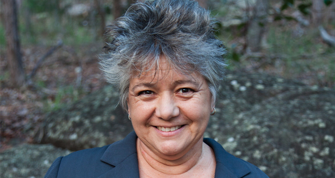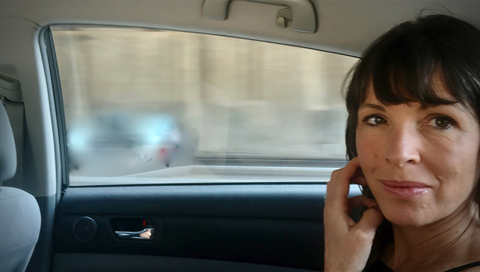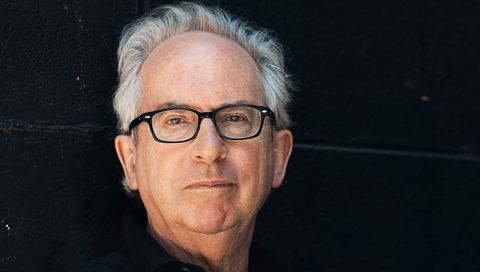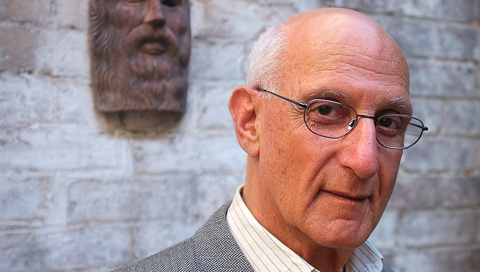“I have a rule for myself, that I want my Aboriginal characters to have four things – humour, beauty, power and land. Since writing Mullumbimby, I have consciously added love to that list.”
Explore upcoming events

This year’s Sydney Writers’ Festival brings together an extraordinary array of the world’s best talent. Coming together to debate, discuss and dissect these strangest of times we find ourselves in, these writers promise to deliver illuminating addresses and unmissable panels.
Here, we highlight some of the names on the program who’ve ascended to the pinnacle of their professions – as novelists, filmmakers and poets.
Melissa Lucashenko
Best known for: Her sharp, uncompromising writing that gives voice to the modern Indigenous experience. With acclaimed novels Steam Pigs, Mullumbimby and Hard Yards already to her name, it was her 2018 novel Too Much Lip that cemented her place as a literary powerhouse. The book was shortlisted for the Victorian Premier’s Literary Award for Indigenous Writing and the Stella Prize, was named the winner of the 2019 Miles Franklin Award, and is currently being adapted for television.
Latest book: Too Much Lip, a dark – and darkly funny – tale of family ties, crime and the weight of history. The story of one Kerry Salter – wise-cracking, Harley-riding and tough as nails – as she returns to her hometown of Durrongo, in Bundjalung country, and to the family she left behind. With a greedy white developer threatening her family’s ancestral land, Kerry must choose between getting out or digging in – and she’s not one to run from a fight. Fearless, witty and utterly memorable, this book is an exhilarating read from start to finish. As Melissa puts it, “No doubt some readers will find it shocking, but then I’m not writing to make people feel warm and comfortable.”
George Miller
Best known for: Being the brilliant mind behind the Mad Max franchise. But he’s also been a doctor, a co-writer of beloved kids movie Babe, creator of the animated franchise about tap-dancing penguins Happy Feet, and director of the cult classic Witches of Eastwick. Voraciously creative and loyal to no genre in particular, George is currently in Sydney working on a fantasy-romance-drama starring Tilda Swinton and Idris Elba called Three Thousand Years of Longing.
Latest work: Mad Max: Fury Road, a fever dream of a movie that spent 20 years in development and became an instant classic. Though its post-apocalyptic plot is deceptively simple – road warrior Max (Tom Hardy) teams up with the fierce driver Furiosa (Charlize Theron) to liberate the indentured wives of the evil warlord Immortan Joe – it’s a far cry from your average popcorn film. Nominated for 10 Academy Awards (it took home six), it’s at once a helter-skelter action flick and a thoroughly female-led tale, with Furiosa as protagonist and the plight of women at its heart. As academic and author Eve Ensler (The Vagina Monologues), who George brought on to consult on the film, says, “I think George Miller is a feminist, and he made a feminist action film.”
“In Japan they called [Mad Max] a samurai movie and said, ‘You must know Kurosawa’. I’d never heard of Kurosawa. In France they said, 'Oh it’s a western on wheels’. In Scandinavia they said, ‘He’s a Viking’. And basically I began to realise that …. there is a collective unconsciousness going on … I’ve been trying to figure out those mysteries ever since.”
Rachel Cusk
Best known for: Perceptive and often provocative writing that uses what she terms an “annihilated perspective”, in which the protagonist’s voice is elided, almost invisible. A writer of eloquent precision, Rachel’s abiding themes are ambivalence toward motherhood, domestic fracture and breakdown, power and powerlessness, and the private self versus the public self. Writing across fiction, memoir and essay, this chronicler of the personal is renowned for her coolly glittering prose and astute examination of women’s lives.
Latest book: Second Place tells the story of M, a mother on the brink of rebellion, whose chance encounter with a transcendent work of art sets off a chain of events that draws her and her family into the orbit of the evasive artist who created it. Along with the artist’s cosmopolitan lover, M, her husband, their daughter and her partner hole up in the family’s remote coastal cottage salvaged from the land, where secrets, alliances and private desires swiftly come to light. Oprah Daily described it as “a captivating, compulsively readable tale – part confession, part allegory – that unflinchingly peers into the crevices of relationships.”
“The main difficulty of being, perhaps, is that the ‘self’ wants a story, wants to be explained, wants to be situated in a meaningful narrative. Because we’re trapped in the self, and the self is at the centre of our own experience, having that story – and being the central character in it – feels like a necessity. And of course reality denies that meaning, that coherence, that centrality of self, at every turn.”
Peter Carey
Best known for: Being one of Australia’s most decorated novelists, with two Booker Prizes, three Miles Franklin Awards and an Order of Australia to his name. With a decades-long career studded with classics like The Fat Man in History and Other Stories, Oscar and Lucinda, True History of the Kelly Gang and Jack Maggs, this statesman of Australian literature is one of the greats.
Latest book: Released in 2018, A Long Way from Home centres on a car race (the country-encircling Redex Trial) and a group of characters who are drawn into its thrall: Irene and Titch Bobs, a young couple, and Willie Bachhuber, a young teacher with German heritage. As the novel progresses, tracking its way through the Australian landscape, it becomes more about a different kind of race, engaging with ideas of whiteness, colonialism and Australian mythmaking. With the consequences of colonialism – its violent operation, environmental destruction and falsification of history – far from resolved in this country, the issues explored in A Long Way from Home are still relevant than ever.
“You can’t be a white Australian writer and spend your whole life ignoring the greatest, most important aspect of our history, and that is that we – I – have been the beneficiaries of a genocide.”
David Malouf
Best known for: His distinguished career spanning prose, poetry, lectures, essays and libretti. From his war novels (Fly Away Peter, The Great Word) to semi-autobiographical work (Johnno) to expansive historical fiction (Remembering Babylon, The Conversations at Curlow Creek), David’s writing skilfully guides us towards a deeper understanding of ourselves, our world and our place in that world. A legend of letters, his is a closing address you won’t want to miss.
Latest book: An Open Book, a collection of quiet poems that embody David’s best qualities as a writer: vividness, poignancy, grace, wit and rhythm. When it was shortlisted for the Kenneth Slessor Prize for Poetry, the judges praised it for its exemplary craft and unique expression of universal concerns: “selfhood’s hall of mirrors, the insistent resonances of childhood, the miraculous grace we find despite misunderstandings and the shortfall between our inner and outer lives.”
“Fiction, with its preference for what is small and might elsewhere seem irrelevant; its facility for smuggling us into another skin and allowing us to live a new life there; its painstaking devotion to what without it might go unnoticed and unseen; its respect for contingency, and the unlikely and odd; its willingness to expose itself to moments of low, almost animal being and make them nobly illuminating, can deliver truths we might not otherwise stumble on.”


